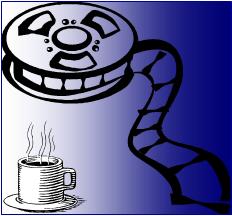

|
 |
Imitation of Life (1959)
|
Please go to the new Coffee Coaster site implemented more gracefully in Wordpress. Full conversion by 9/12. This page: http://brianrwright.com/CoffeeCoasterBlog/?p=1532 |
Lana Turner ... Lora Meredith
John Gavin ... Steve Archer
Sandra Dee ... Susie - 16
Susan Kohner ... Sarah Jane - 18
Robert Alda ... Allen Loomis
Dan O'Herlihy ... David Edwards
Juanita Moore ... Annie Johnson
Lora Meredith: Well, I'm going up and up and up - and nobody's going to pull me down!
Lora: You're aiming high.
Steve: Why not? It doesn't cost anymore. Don't you believe in chasing rainbows?
Sarah Jane: I'm someone else. I'm white... white... WHITE!
Color this film Melodrama with a capital M. Complete with the tearjerker theme(s), morality-play dialog, and saccharin musical crescendos. Supposedly, Imitation of Life (1959) is a remake of an earlier film of the same name starring Claudette Colbert. And on IMDb the movies have approximately the same high rating, 7.7 for the 1959 version and 7.5 for the 1934 version. [I have just queued Netflix to deliver the Colbert version; I'm sure I'll delight in the subtle differences. And I wonder about whether the melodrama qualities will be as strong back in the 30s.]
Three years ago I reviewed a movie Far from Heaven, which is a 2002 film rendered in much the same fashion as those 1950s middle class melodramas like Imitation of Life. Because it was 2002, Far from Heaven took the latitude to explore a theme that would not even have occurred to filmmakers to present in the 50s: homosexuality. Here's part of what I wrote in that review:
So we know the movie deals with racial stereotypes and the problems of true love in a closed-off world that way. Unfortunately, the film is difficult to discuss without also talking about what it is in Cathy's married life that leads to such heart-wrenching soul-searching in the realm of (potential) romantic love. Let's just say her husband Frank—the chosen one on the fast track to the top of the company and number one banana at the country club—has a sexual-orientation issue. This is a jolt out of the blue to Cathy who's stuck trying to comprehend something that in that era of sexual oblivion is simply incomprehensible.
Interestingly, Far from Heaven also deals with racial-prejudice issues. Noteworthy that denial and persecution of homosexuals trails racial prejudice by perhaps 30 years in being discussed at all. [When I grew up in the 1950s 'there absolutely were no homosexuals.' It wasn't until the 1980s that any honest discussion came into the culture.] The racial issue in Far from Heaven is more about class/caste separation; in Imitation of Life (IOL), we have a biological anomaly—a girl born of black parents who because of the skin lightness of the father is perceptually white—that provides grist to the melodrama mill. As I mentioned, IOL was out there early on the racial issue presentation.
As it turns out, the 'black' daughter's story—the teen/young adult Sarah Jane is played wonderfully and deeply by Susan Kohner—is but one of the threads in the drama: behind the story of her mother Annie Johnson's (Juanita Moore) long-suffering burden of being denied and unwanted by the daughter; behind the story of lead character Lora Meredith's (Lana Turner) ambition for stardom that puts the ones Lora loves in second place; and in front of Lora's daughter Susie (Sandra Dee) who adores her mother but later comes to conveniently reject her mother for not 'being there for her;' and also in front of Lora's husband Steve Archer (John Gavin) an idealistic photographer turned well-to-do advertising executive.
You get the picture. And I haven't even thrown in the suggestion of a love triangle involving Lora and daughter Susie with Mr. Steve. Nowadays, the filmmakers may have gone further to imply some menage a trois potential, but they draw up short, thankfully. Not only were there 'no homosexuals in the 1950s' there wasn't any literal sex either: the Stork brought babies, and kissing out of wedlock, w/o the Lord's okay, was known to bring the Stork... not to mention descent into female hell. It's amazing that you can watch a movie like IOL and never once get the impression that sexual desire is a factor in individuals' choices and actions. Or that men and women have, you know, physical bodies, aside from the clothes they wear.
Well, we've come a long way. Sort of. Perhaps we've tilted as a culture too far toward the other pole of vulgarity and copious sex without love, mind, or even sensuality. Candidly, I enjoy the 1950s sex-denial culture vs. our current one; it's more interesting. All the pretenses and talking around sex, the double-entendres, the oblique references to what people really want, the elaborate costumes and preening, the whole complex structure of falling in love, sexual-relationship foreplay, role playing, misogynism, faux male dominance behavior, women's ploys to 'get their man.' But what really appeals to me is the occasional genuine belief from both parties that they're actually going to find true love under society's pile of horse manure.
A little off the track. But I've seen number of TCM movies lately—e.g. Picnic, Splendor in the Grass, Cat on a Hot Tin Roof—where having sex, especially if you're a young woman, before wedlock, is about the worst thing you can do, and you deserve to go insane for the great sin of it. The culture placed a huge burden on women before the sexual revolution, and it's evident in IOL. Of course, Lora isn't a young maiden, she's been on her own for several years since her husband died, but her only alternative for having a real relationship with a man is to marry him... and there are strings:
In an early scene on a Coney Island beach—at the same time Lora decides to keep Annie and Sarah Jane as kind of live-in maidservants—Lora meets Mr. Steve. Steve wants to marry her, but she'll have to give up show business like right now. No deal, she says, "... I'm going up and up and up - and nobody's going to pull me down!" In other words, if you wanted to be a career woman in those days, it meant not being married and often gave you a bad reputation. In the movie, she and Steve muddle through despite the stereotyping.
So much drama crammed into all the characters, so little time. I asked a friend tonight whether he'd seen Imitation of Life, and he said sure, his wife couldn't watch it without a box of tissues. Funny, as emotional as the plot moves along, especially toward the end, the extremity of the conditions—the extreme melodrama if you will—made the movie a bit unreal to me. I'm tempted to even call the acting overdone, but that was the style. Still this is a strong movie that does give one much to consider and makes a splendid big deal out of the essential things.
And I must say Susan Kohner as Sarah Jane and Juanita Moore as Annie Johnson earn their Oscar nominations several times over. A most entertaining, multifaceted, and culturally stimulating flick. Special thanks to Randy U for the recommendation.
###
2011 November 30
Copyright © Brian Wright | The Coffee Coaster™
Imitation of Life | Lana Turner | John Gavin | 1950s Melodramas
| Publish Fee: $25 Donation |  |
|||
| |
|
Main | Columns | Movie Reviews | Book Reviews | Articles | Guest |